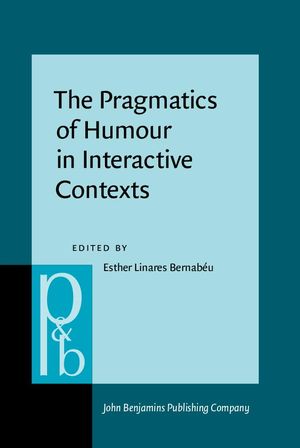Reseña del libro: Linares Bernabéu, Esther (ed.) (2023). The pragmatics of humour in interactive contexts
DOI:
https://doi.org/10.14198/ELUA.26268Palabras clave:
humour in interaction, sociopragmatics, multimodality, cognitive linguisticsResumen
Reseña del libro: Linares Bernabéu, Esther (ed.) (2023). The pragmatics of humour in interactive contexts. Amsterdam / Philadelphia: John Benjamins Publishing Company, 238 páginas, ISBN: 9789027213877.
Citas
Adan, A., & Almirall, H. (1991). Horne & Östberg morningness-eveningness questionnaire: A reduced scale. Personality and Individual Differences, 12(3), 241-253. https://doi.org/10.1016/0191-8869(91)90110-W
Attardo, S., Pickering, L., & Baker, A. (2011). Prosodic and multimodal markers of humor in conversation. Pragmatics & Cognition, 19(2), 224-247. https://doi.org/10.1075/pc.19.2.03att
Berk, L. S., Tan, S. A., Fry, W. F., Napier, B. J., Lee, J. W., Hubbard, R. W., Lewis, J. E., & Eby, W. C. (1989). Neuroendocrine and stress hormone changes during mirthful laughter. The American journal of the medical sciences, 298(6), 390-396. https://doi.org/10.1097/00000441-198912000-00006
Briz, A. (1998). El español coloquial en la conversación. Ariel.
Briz, A., & Grupo Val.Es.Co. (2002). Corpus de conversaciones coloquiales. Arco Libros.
Chovanec, J. (2021). Saving one's face from unintended humour: Impression management in follow-up sports interviews. Journal of Pragmatics, 176, 198-212. https://doi.org/10.1016/j.pragma.2021.01.021
Dynel, M. (2016). With or without intentions: Accountability and (un) intentional humour in film talk. Journal of pragmatics, 95, 67-78. https://doi.org/10.1016/j.pragma.2015.11.010
Gironzetti, E. (2017). Prosodic and multimodal markers of humor. In The Routledge handbook of language and humor (pp. 400-413). Routledge. https://doi.org/10.4324/9781315731162-28
Hakoköngäs, E., Halmesvaara, O., & Sakki, I. (2020). Persuasion through bitter humor: Multimodal discourse analysis of rhetoric in internet memes of two far-right groups in Finland. Social Media+ Society, 6(2), 2056305120921575. https://doi.org/10.1177/2056305120921575
Kazarian, S. S., & Martin, R. A. (2004). Humour styles, personality, and well-being among Lebanese university students. European journal of Personality, 18(3), 209-219. https://doi.org/10.1002/per.505
Kuiper, N. A., Martin, R. A., & Olinger, L. J. (1993). Coping humour, stress, and cognitive appraisals. Canadian Journal of Behavioural Science / Revue canadienne des sciences du comportement, 25(1), 81-96. https://doi.org/10.1037/h0078791
Losada, A. V., & Lacasta, M. (2019). Sentido del Humor y sus Beneficios en Salud. Calidad de Vida y Salud, 12(1), 2-22.
Martin, R., Kuiper, N., Olinger, L., & Dance, K. (1993). Humor, Coping with Stress, Self-Concept, and Psychological Well-Being. Humor-international Journal of Humor Research (HUMOR), 6, 89-104. https://doi.org/10.1515/humr.1993.6.1.89
Martin, R. A. (2007). The Psychology of Humor: An Integrative Approach. Academic Press. https://doi.org/10.1016/B978-012372564-6/50024-1
McGhee, Paul E. (2010). Humor as survival training for a stressed-out world: The 7 humor habits program. AuthorHouse.
O'Halloran, K. L. (2008). Systemic functional-multimodal discourse analysis (SF-MDA): constructing ideational meaning using language and visual imagery. Visual Communication, 7(4), 443-475. https://doi.org/10.1177/1470357208096210
Penney, J. (2020). 'It's So Hard Not to be Funny in This Situation': Memes and Humor in US Youth Online Political Expression. Television & New Media, 21(8), 791-806. https://doi.org/10.1177/1527476419886068
Tsakona, V. (2009). Language and image interaction in cartoons: Towards a multimodal theory of humor. Journal of pragmatics, 41(6), 1171-1188. https://doi.org/10.1016/j.pragma.2008.12.003

Descargas
Estadísticas
Publicado
Cómo citar
Número
Sección
Licencia
Derechos de autor 2024 Anastasia Khaylina

Esta obra está bajo una licencia internacional Creative Commons Atribución-NoComercial-CompartirIgual 4.0.






